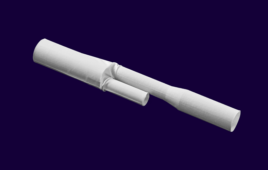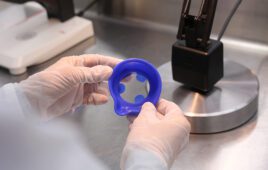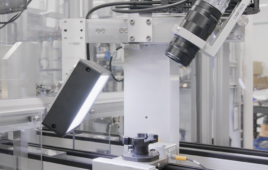 Bailey Harder is a Plant Manager at Phillips-Medisize New Richmond with 11+ years in manufacturing in various capacities. She’s held roles in Engineering, Quality, Operational Excellence and Operations prior to her current role, and she uses that experience to promote virtuous cycles of mutual benefit for the company, their customers and patients.
Bailey Harder is a Plant Manager at Phillips-Medisize New Richmond with 11+ years in manufacturing in various capacities. She’s held roles in Engineering, Quality, Operational Excellence and Operations prior to her current role, and she uses that experience to promote virtuous cycles of mutual benefit for the company, their customers and patients.
What initially attracted you to the medtech industry? How has your perspective on the industry evolved over the course of your career?
The medtech industry is rapidly changing and growing at an unprecedented rate. While a good portion of my background is in automotive and commercial type manufacturing, the opportunity to be a part of the medtech industry growth and change was very exciting.
From your experience, what are some of the key challenges that medtech engineers are likely to face in the coming years? How can professionals in the industry prepare for and navigate these challenges effectively?
Medtech engineers face the continued increase of rate of change of knowledge and technological advances, both in understanding the medical science and the technology available to innovate care. In the coming years, knowing how to connect quickly with emerging topics on both sides will be very important for medtech engineers.
In your opinion, what areas or applications within medtech have the greatest potential for growth and innovation? Why do you consider them promising?
As medtech continues to evolve, our end customers (patients) are taking more ownership in their healthcare decisions as well as understanding that preventive care and early detection are crucial to improving outcomes. Understanding how we can best serve patients through innovative products and processes that address these needs will be an ongoing potential for growth.
Considering the increasing importance of interdisciplinary collaboration, how do you think medtech engineers can effectively collaborate with professionals from other fields, such as medicine and computer science, to drive innovation inthe industry?
The advice I would offer to all engineers would be to find ways early and ongoing in your career to spend time in or around other disciplines. This was advice given to me early in my career, that understanding the “how” and “why” of other disciplines will help you effectively lead cross-functional teams and collaborate across disciplines. Often, trade-offs must take place to make the best decision and understanding the thinking of other disciplines by working in and/or around them will put you in a great position to foster collaboration.
How do you think diversity and inclusion can contribute to the advancement of medtech engineering? How do you foster a culture of innovation within your team or organization?
Diversity and inclusion are foundational to advancement of any environment. I’m grateful to work for a company that is intentional about understanding, creating and fostering a diverse and inclusive culture. Phillips-Medisize focuses heavily on challenging all processes and ideas, in a healthy and respectful way. Without this, we risk becoming complacent, and in today’s environment and the rate of change of all industries, you quickly can fall behind the innovation curve.




